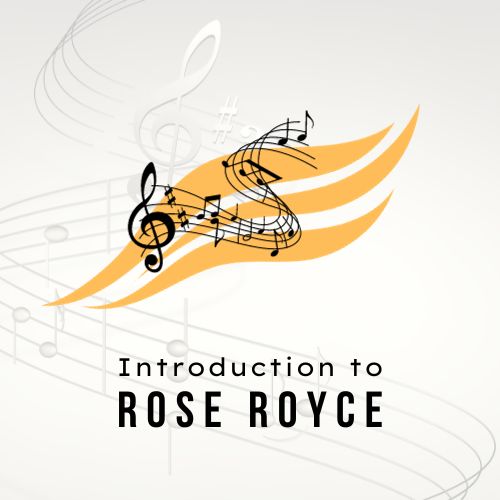Formation as Total Concept Unlimited
Formed in Los Angeles, California, the band that would be Rose Royce started as an eight-piece collective sometime in 1973. The group comprised of drummer Henry Garner, conga player Terral “Terry” Santiel, bassist Lequient “Duke” Jobe, trumpeter/lead vocalist Kenny Copeland, saxophonist Kenny Copeland, guitarist and another lead vocalist Kenji Brown, trumpeter Freddie Dunn and keyboardist Victor Nix. These musicians had played as backup players for several acts, and they eventually united under the name Total Concept Unlimited. They auditioned for Motown soul star Edwin Starr who hired them as his backup band — with him, Total Concept Unlimited (or T. C. U.) toured England and Japan.
Through Starr, the band got to know producer and songwriter Norman Whitfield, who was dubbed as the Motown’s “psychedelic shaman” for having introduced some psychedelic funk and rock to the label. Prior to Rose Royce, Whitfield had produced songs such as “War” (Starr), “Smiling Faces Sometimes” (The Undisputed Truth) and “Papa Was a Rolling Stone” (The Temptations), whose styles carry progressive funk-rock leanings.
As Magic Wand and finally Rose Royce
Whitfield eventually established his own label carrying his own name. He then signed T. C. U. as one of his artists, and re-named them the Magic Wand. The group began collaborating with Yvonne Fair, as well as with Undisputed Truth, and the Temptations.
Along the way, Undisputed Truth member Joe Harris chanced upon a singer named Gwen Dickey, who was then a member of The Jewels. Harris then recommended the singer to Whitfield, who then had her fly to Los Angeles to have an audition there. Dickey was then made as a the group’s lead singer, literally giving the group a voice. Whitfield gave Dickey the stage name Rose Norwalt.
Film director Michael Schultz hired Whitfield and his new group to provide the soundtrack for his film Car Wash. In deference of the film and the band’s singer Rose Norwalt, the band changed their name as Rose Royce.
Biggest hit with “Car Wash”, and proper debut album
Car Wash was a box-office hit, and its soundtrack was likewise very successful. In fact, “Car Wash” topped the Billboard Hot 100 and R&B singles charts in 1976. It also went to #3 on the Billboard dance chart and #9 on the UK singles chart. Another song off the Car Wash soundtrack, “I Wanna Get Next to You” was also a Top 10 pop (at #10) and R&B (at #3) hit as well.
The Car Wash soundtrack album peaked at #2 on the R&B album chart, and #14 on the Billboard 200, eventually going gold. The soul/R&B/disco/funk group rose to national recognition.
In 1977, Rose Royce released their first proper album Rose Royce: II In Full Bloom. The LP topped the R&B album chart, as well as #9 on the Billboard 200, netting the group their first and only (as of yet) platinum certification. The album’s first single “Do Your Dance” was a Top 40 pop hit, and #4 R&B. Another single “Ooh Boy” was a minor pop hit and #3 R&B hit.
Later career
Rose Royce’s second album Rose Royce III: Strikes Again! (1978) was also a sizable hit. It went to #4 on the R&B album chart and #28 on the Billboard 200, earning it a gold certification. Its leadoff single “Love Don’t Live Here Anymore” was another Top 40 item at #32 and it reached #5 on the R&B chart.
Rose Royce continued to release records that still figured on the charts but never achieved the same commercial success that their previous singles did. Norwalt (or Dickey), left the band in 1980 and the band temporarily split. The remaining members reunited and underwent some personnel changes. Rose Royce moved to the UK where they have remained popular since.

